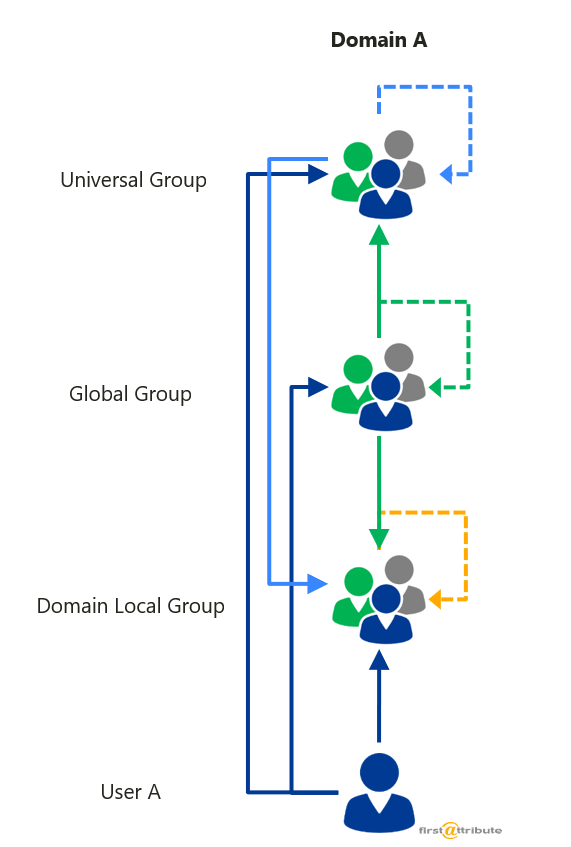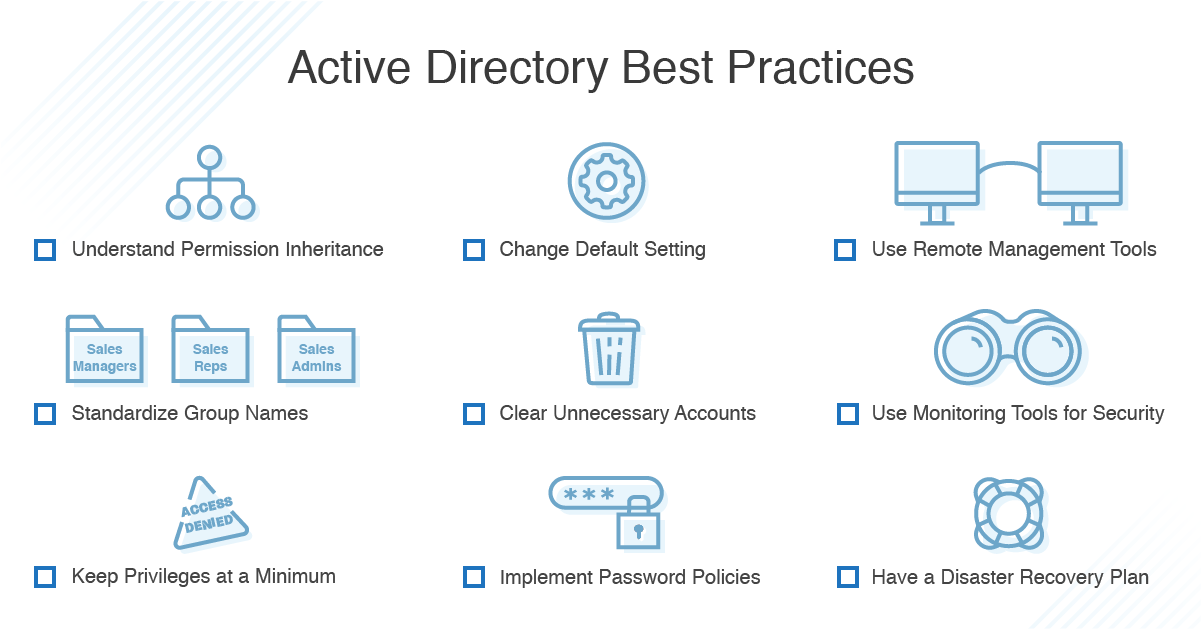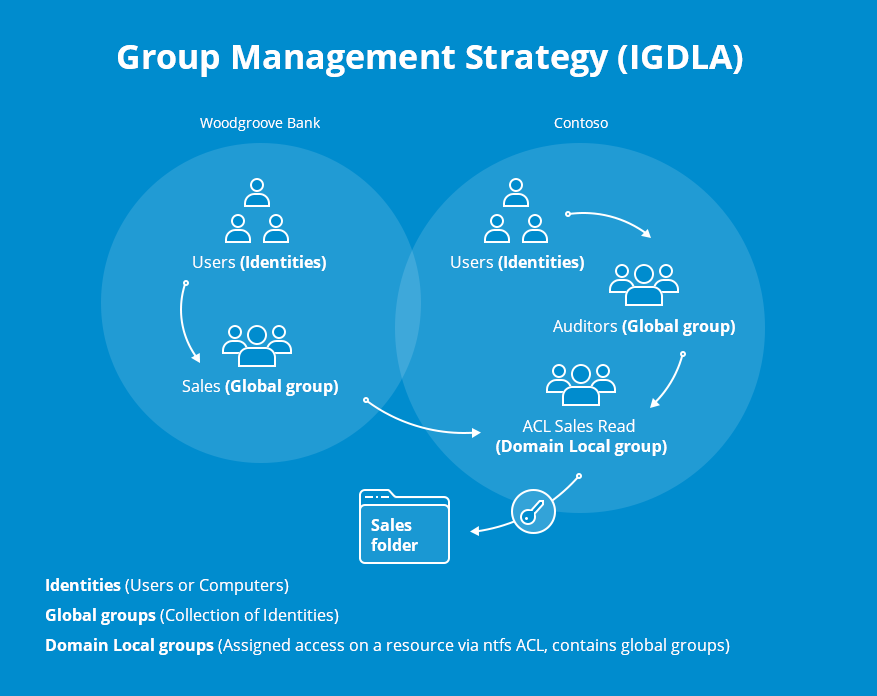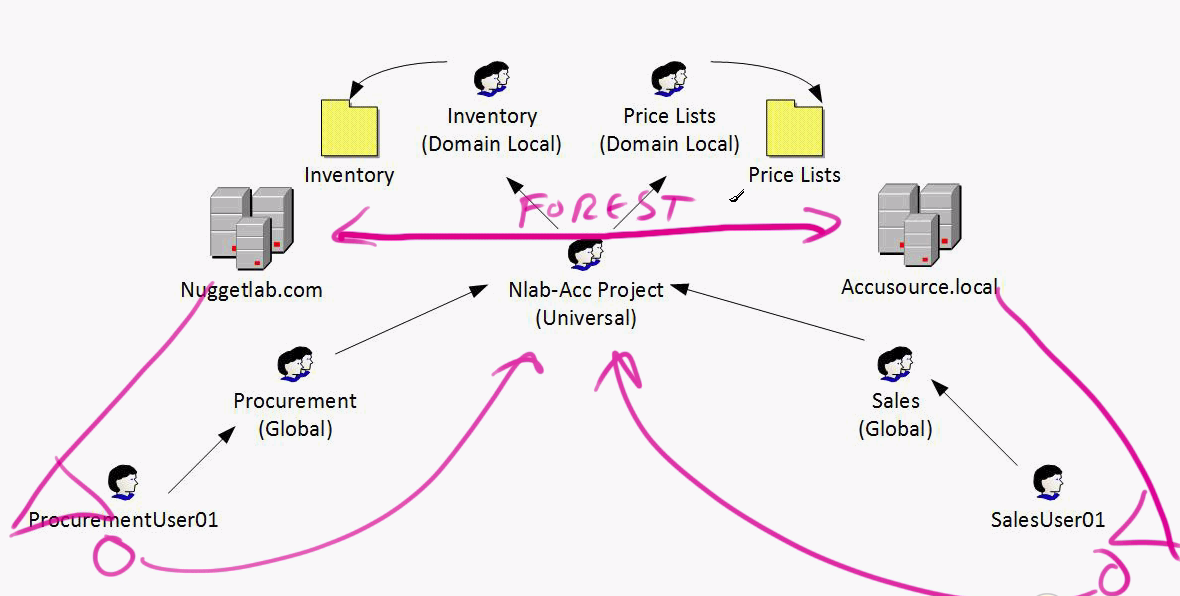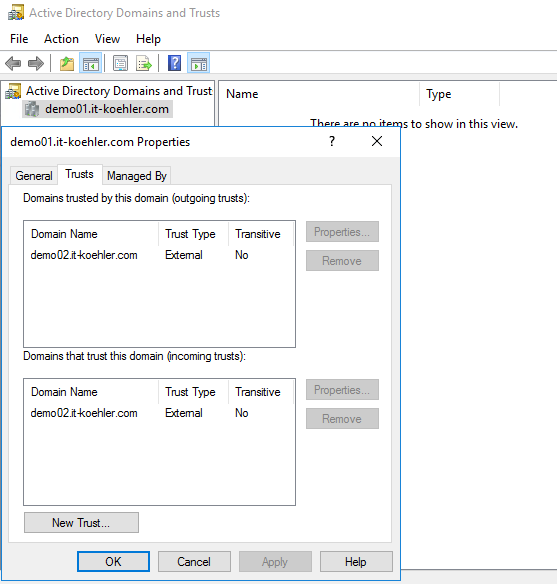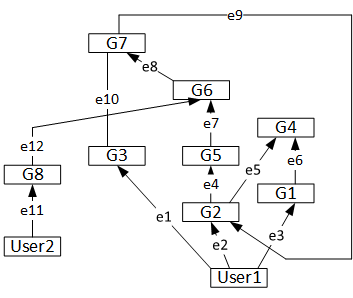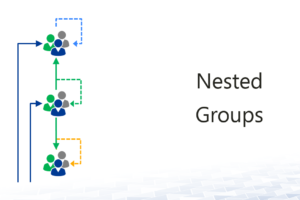Domain Trust Group Nesting
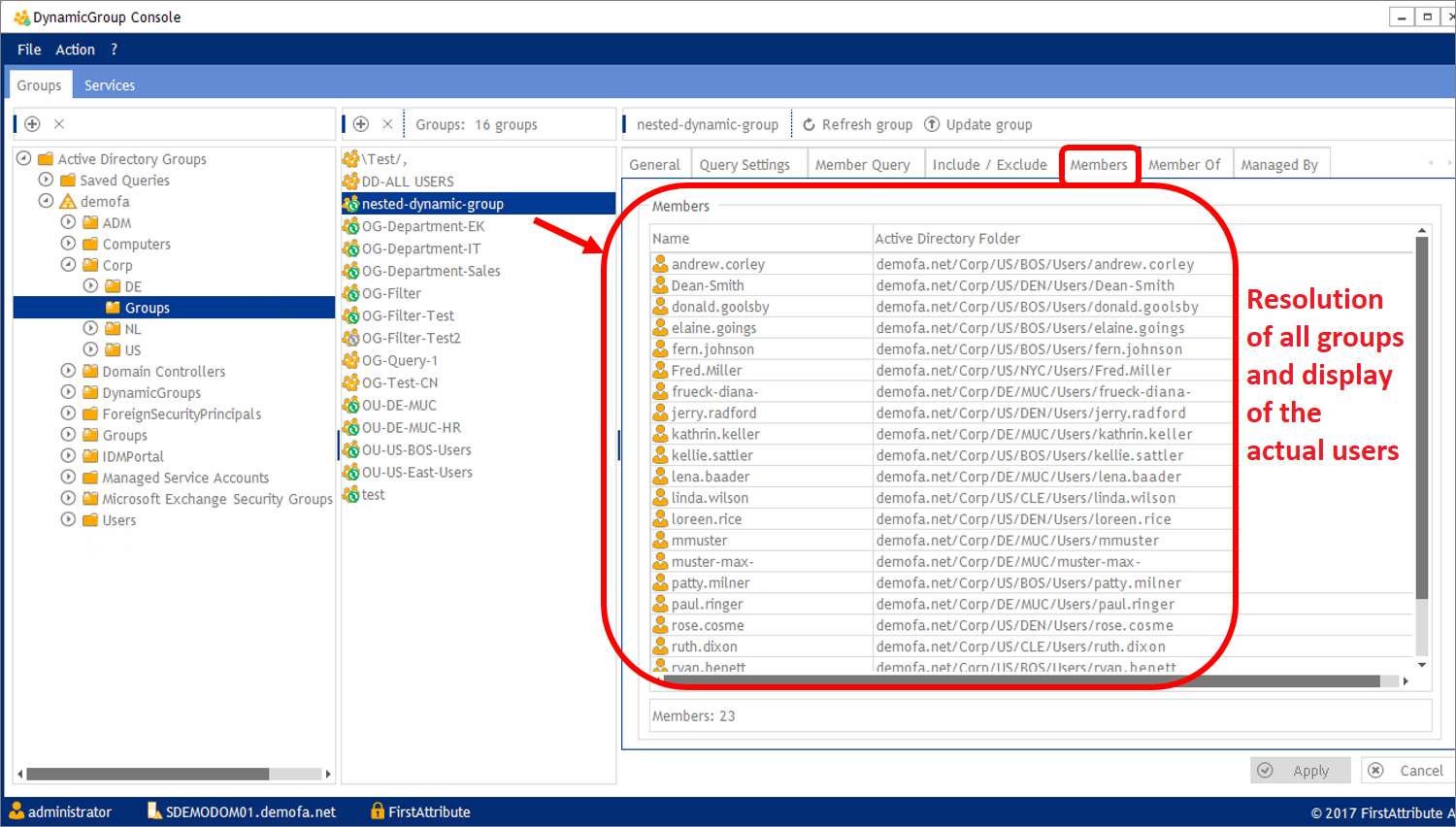
Granting permissions using a group from a different domain is only possible where a trust relationship exists between the domains.
Domain trust group nesting. Be aware that depending on the scope of the group the group can contain only specific types and scopes of other groups. To nest a group in another group use the same techniques described in adding members to groups in a domain. As you consider the rules above you can see why you cannot nest a domain local group in a global or universal group. We can see in the illustration below how this particular nesting group comes together.
A universal group can be a member of a universal group or domain local group anywhere in the forest. Global groups can become members of other global groups in the same domain. Next global groups offer the possibility of nesting users computers or even domain local groups via a trusted domain of the same forest. Probably because we have treated them that way.
The nesting options also depend on whether the domain is in mixed mode or native mode. So i was confused when i was doing some external trust labbing and while i could add a domain local group which contained a global group from the trusted domain to folder permissions i could not add that same group to the local remote desktop. Global groups can be used for everything but you can nest groups and use domain local groups to simplify management. Additionally a global group of a domain can become a member of one or more domain local groups of the same domain.
Additionally a universal group can be used to manage resources for example to assign permissions anywhere in the forest as well as across trusts. Agdlp is microsoft s recommended nesting group for role based access configuration in a single domain setting. Nesting options depend on whether the domain functional level of your windows server 2003 domain is set to windows 2000 native or windows 2000 mixed. In a single domain the scope of groups will have no effect on performance.
The domain local group holds the specific permission to resources we want the global group to have access to such as files and printer queues. Universal groups are useful in multidomain forests. Universal useable in the domain the group was created in or in any domain or forest that trusts the domain the group is in.
